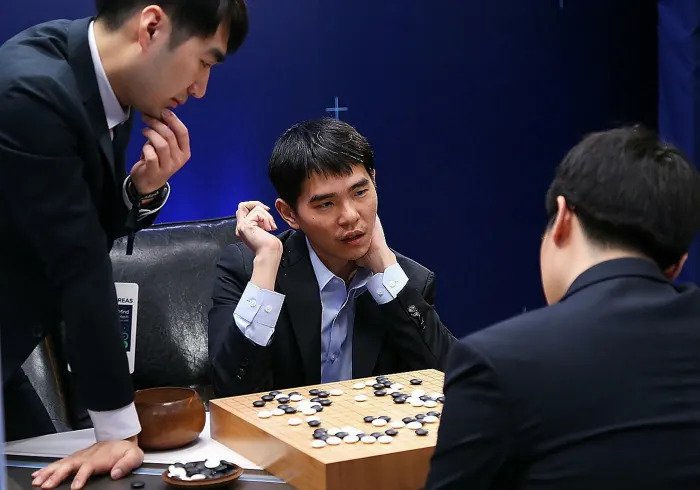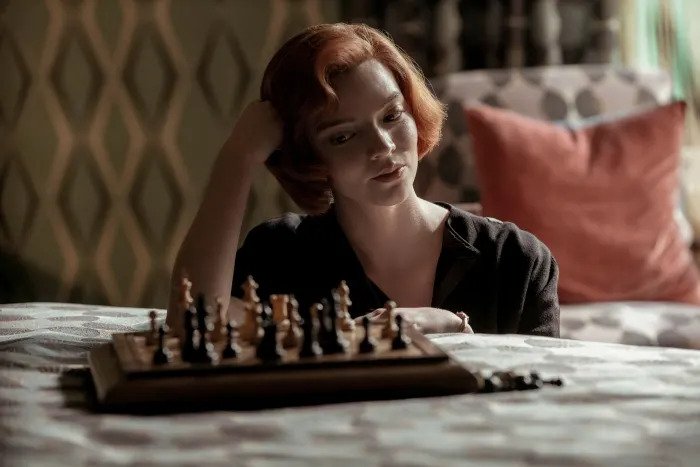Humans have always loved to play games such as chess and poker, whether for reasons of survival, control or just plain fun

ABOVE: South Korean Go player Lee Sedol, who was beaten 4-1 by Google’s AlphaGo in 2016
12 March 2022 (Krakow, Poland) – On every trip I stuff my Karkoa carry-on bag (they have a version that serves as a clothes/computer/gym bag or a clothes/computer/book bag) with at least one paperback and a clutch of magazines. I am a voracious reader. I still average two books a month + 3-4 hard cover magazines (a habit my Mom instilled), even if I am traveling. As most of my regular readers know I belong to a publisher’s consortium – a membership due to my university days when I had a long-time, part-time position as a “professional reader” of unsolicited manuscripts submitted to publishers (Random House and then Simon & Schuster). Read the book and prepare a no-longer-than-5-page summary. Later on I had the opportunity to offer my opinion on a book, and still later do a full-scale review.
It means that through the consortium I receive about 10 books a month – the paperback versions sent to reviewers pre-publication. Some books stay in my library, but the majority go to my Foundation which distributes them to libraries.
The book needs to be unrelated to my travel and having been immersed in and writing about war these last few weeks I took Saturday off and finished “Seven games: A Human History” by Oliver Roeder.
Roeder – who I actually met via the quantitative research team he ran at NYU’s Brennan Center for Justice – is a student of games and game theory, and is deeply aware of the tension between what games are and what people project onto them. He even quotes that line from “Shibumi” by Trevanian – the super-assassin hero who praised Go as a fitting pastime for the kind of warrior/poet/lover we all should be – at the start of the chapter on Go:
“Go is to Western chess what philosophy is to double-entry accounting”.
Shibumi then probably went out and killed someone with a toothpick.
Roeder’s book is a “group biography” of seven classic games – checkers, chess, Go, backgammon, poker, Scrabble and bridge – and is in many ways an interrogation of these questions:
1. Are games more than their rules and playing pieces?
2. Are they metaphors for deeper truths of the human experience?
3. Is chess “life in miniature,” as the former world champion Garry Kasparov once said?
4. Or is it just a board game — Risk with more rules and a boring map?
His subtitle – “A Human History” – threw me off a bit because the book is not truly a philosophical inquiry. Nor is it a deep consideration of any of the games or their star players, though such people provide much of the joy of the book. But the book is fascinating nonetheless. Especially the chapter about Go.
Back in 2016, Lee Sedol, at the time the world’s best go player, was beaten soundly by AlphaGo, a powerful computer built by Google’s artificial intelligence division. The South Korean expected to win easily. Instead he found himself crushed, losing 4 games to 1. Yet he won an ovation at the press conference following his single victory nonetheless, as if humanity had been suddenly redeemed in the face of overwhelming defeat.
Similar face-saving scenes have occurred in chess, most obviously two decades earlier when IBM’s Deep Blue supercomputer took apart grandmaster Garry Kasparov. He writes:
“The Deep Blue Team was asked by the corporate PR divisions to dress well and not to smile during the closing ceremony — in deference to the human race”.
Journalist and gaming geek, Roeder’s book is part memoir and part meditation on the way in which overwhelming machine superiority is changing both games and those who play them. His account is perceptive in particular on the oddities of gaming subcultures, most notably those he plays well himself such as Scrabble, where he was briefly one of the 200 or so best players in the US.
All seven games in question which I noted above have been affected by computational progress in different ways. Chess is enjoying a machine-driven renaissance, as players flock to compete and watch online. Rather than giving up, computers are even inspiring human improvement. Norway’s Magnus Carlsen, not merely the world’s best player but arguably the best of all-time, says he has learned to play in an even more attacking style having studied games played by AI-powered machines.
Not every pastime has been livened up. Roeder spends an enjoyable chapter recounting his travels to Las Vegas to play in the World Series of Poker, a tournament once known for glamor and high-stakes excitement. Rather than a contest dominated by outsized personalities and the drama of bluffs and tells, however, he found top players sitting quietly in sunglasses and hoodies, ignoring their opponents while quietly recalling from memory the optimal strategies taught by their poker software.

Anya Taylor-Joy in the record-breaking Netflix series “The Queen’s Gambit”
Seven Games seeks to answer one further question: why do humans play at all? Individual games can come in and out of fashion. Backgammon was cool in the 1970s; poker grew popular in the 2000s; chess is having a moment now, also helped along by “The Queen’s Gambit“, the mega-hit Netflix series. Yet board games in general seem as popular as ever, even in the face of smartphones and other digital distractions.
Historically, the author suggests, game-playing was a kind of Darwinian survival technique, teaching humans how to calculate probabilities and strategy. Now they are popular for different reasons, most obviously their ability to satisfy our deep psychological desires “to solve an elegant problem,” as Roeder puts it. At their best games provide a sense of control and agency in an often-chaotic world.
Will their popularity endure? It has done so this far at least, proving wrong those who worried that players would lose interest in pastimes in which humans were demonstrably inferior best to computers — or indeed those, like checkers, which computers have long ago solved in their entirety. The enduring psychological challenge of gaming and puzzle solving isn’t always pleasant of course, especially if you lose. It’s a point Roeder makes during a wry account of the time he once ended up playing Carlsen across the 64 squares, as part of an exhibition match in which the Norwegian star played a large number of amateur players at once.
As he pushed up his first pawn, Roeder was in no doubt what was to follow: “Carlsen was about to do to my psyche what Mike Tyson would’ve done to my face,” he recalled. He kept playing though, enjoying the challenge even if it came with the prospect of certain defeat — as if that was a small part of what makes us human after all.
But as I read the book I thought that for a long time machines have been able to get people from A to B much faster than their muscles of their legs can power them. That has not diminished the joy of running or cycling. And I am reminded of Noam Chomsky’s famous quote:
“Watching Deep Blue defeating Kasparov in chess was as interesting as a bulldozer winning the Olympics in weight-lifting”.
Nor is AI anywhere close to matching top bridge players, but I’m not sure whether it’s because not enough money has been spent developing the software, or it’s the innate humanity of the game. Roeder mentions it briefly in his book and notes the game is dying out, its players trending older and smaller in number. But maybe Warren Buffet (a bridge master) has it right. I found this quote (not in Roeder’s book):
“Playing Bridge is like running a business. It’s about hunting, chasing, nuance, deception, reward, danger, cooperation and, on a good day – victory.”
Perhaps by now we’re so used to playing against, or for, our digital masters that we’ve lost interest in something so messy and human that its strategies can’t be simulated by an online bot.
With a bonus for you …

If you look at a Go board and think it looks a bit like a QR code, there’s a good reason why. It’s because the inspiration came to the inventor, Masahiro Hara, while he was playing a game of Go more than a quarter of a century ago. You can read the story by clicking here.